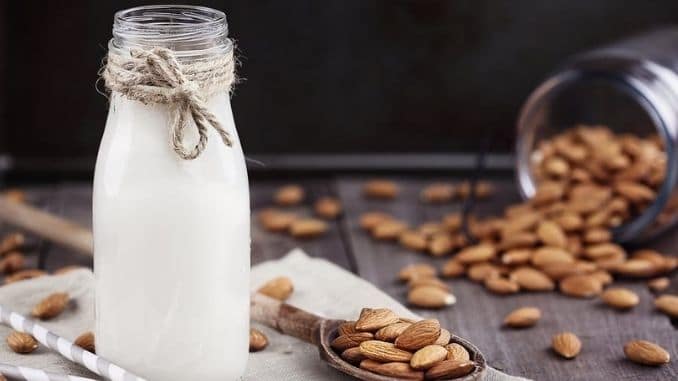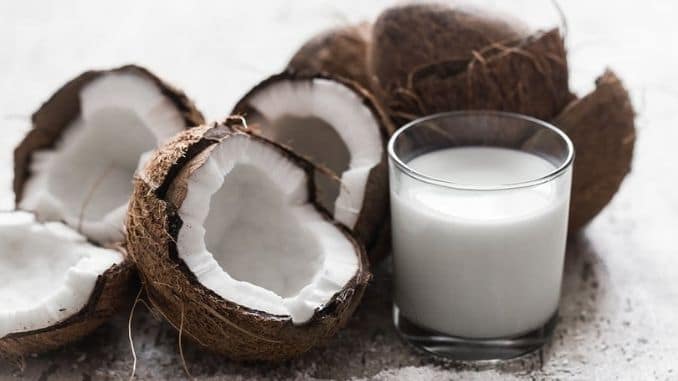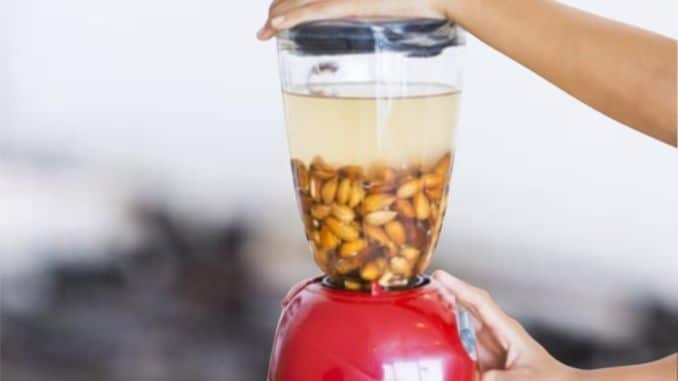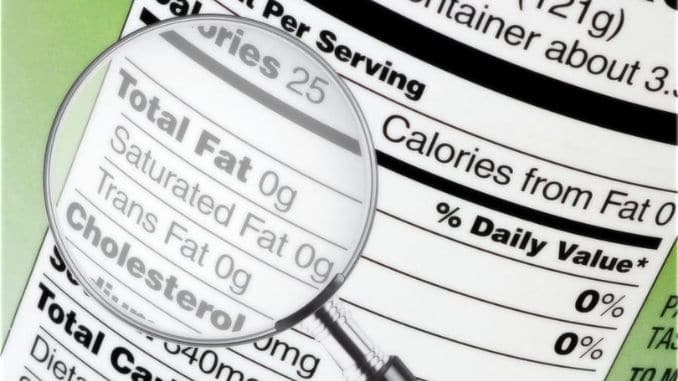
In the world of milk alternatives, there used to be very few options for those of us with milk allergies, lactose intolerances or on dairy-free diets. Soy milk was the most common dairy-free milk alternative, and it was difficult to find at most supermarkets.
Today, we’ve got all sorts of dairy alternatives. Nearly every store that sells cow’s milk also carries a variety of dairy-free milk options. We checked out the ingredients and nutritional content for all the current nondairy beverages out there. Here’s our list of the best types of dairy-free milk alternatives available.
Stay Away from the Sweet Ones
First of all, we want to address the issue of sugar. Many of the popular types of milk alternatives contain quite a bit of sugar. For instance, vanilla almond milk, from the leading brand contains 16 grams (four teaspoons) of sugar per serving. Moreover, w do not recommend any sweetened milk varieties. The same leading brand of almond milk (and most other brands) carries unsweetened almond milk with no sugar at all. With all dairy-free milk alternatives, look for the unsweetened options rather than the original, vanilla or chocolate versions.
- Pea protein milk. A fairly new addition to the dairy-free lineup at most grocery stores, pea protein milk is my current favorite nondairy milk alternative. Almonds, cashews, and yellow peas make up the ingredients of pea protein milk. It has 45 percent of the calcium a person needs in a day (sourced from calcium carbonate) and 25 percent of the recommended daily allowance (RDA) for vitamin D. The best part? Pea protein milk delivers an easily absorbed 10 grams of plant-based protein per serving.
The taste of pea protein milk is subtle and smooth. It’s thick enough to double as the cream for your coffee. It’s an excellent addition to baked goods, smoothies and hot cereals. You’ll find pea protein milk in most grocery stores near the other dairy-free milk alternatives.
- Almond milk. Boasting a very short, pure ingredient list, unsweetened almond milk is a healthful and versatile nondairy milk option. The leading brand of almond milk contains 45 percent of the daily recommended amount of calcium, 20 percent of your vitamin E for the day, 25 percent of vitamin D and 4 percent of both magnesium and riboflavin. While almond milk has only one gram of protein per serving, it’s full of other important nutrients to strengthen the body.
Almond milk has a mild nutty flavor. It’s easy to enjoy by the glass or in a smoothie. It’s not very thick or creamy, but it works well in recipes that call for cow’s milk.
- Cashew milk. Cashew milk has a similar nutritional profile to almond milk — same amounts of calcium, vitamin D and vitamin E. It’s low in calories and also low in protein. The flavor is rich with a hint of cashew. It’s thicker than almond milk and works well in curries and cream soups. Cashew milk is also perfect in creamy dessert recipes that call for whole milk.
- Hemp milk. Moreover, hemp seeds are among the most healthful and nutritious foods in the world. They are high in essential fatty acids, easily digestible proteins and contain all of the essential amino acids. Hemp milk is a nutty-flavored, creamy milk made from hemp seeds. One serving will give you 46 percent of the RDA of calcium, 4 grams of high-quality protein, 30 percent of your vitamin D for the day and 25 percent of vitamin B12 and magnesium.
- Flax milk. Similar to hemp seeds, flax seeds contain all of the amino acids essential for the human body. While this tasty milk alternative contains no actual protein, it does contain 30 percent of the recommended daily amount of calcium, 10 percent of vitamin A and essential fatty acids.
- Oat milk. When you soak rolled oats, steel-cut oats or oat groats in water, then blend and strain it, you get oat milk. It’s smooth and delicious with an oat-like, nutty flavor. The texture is thick and smooth. Oat milk is great as a standalone beverage but also works well as a substitute for half and half in coffee. Moreover, you can bake with it too. Nutritionally, oat milk normally contains about 30 percent of the RDA for calcium, 4 grams of protein, 2 grams of fiber and about 10 percent of the recommended daily amount of iron.
- Coconut milk. Another great dairy-free milk option is coconut milk. Moreover, it’s thick, rich, and naturally sweet tasting. Coconut milk is an excellent substitute for cow’s milk in baking and cooking. It’s great for making custards and puddings, ice cream, and all sorts of desserts traditionally made with heavy cream. Coconut milk also makes a nice base for curries and cream soups. Moreover, coconut milk isn’t just sold in cans anymore. Additionally, you can buy it refrigerated, in cartons near the other nondairy milk alternatives. The leading brand of coconut milk has 50 percent of the recommended daily amount of vitamin B12, 45 percent of calcium and 25 percent of vitamin D.
One Ingredient to Avoid
In the pursuit to create a thick, creamy whole milk-like beverage out of plants, all too many companies have chosen to use thickeners in their products. One such thickener that could lead to serious health problems is called carrageenan. Dr. David Jockers wrote about this common additive that’s often found in almond milk and other nondairy milk products. According to Jockers, “Carrageenan is a glucose related sugar called a sulfate polyglactin from red seaweed and algae.” Carrageenan has been shown to cause cancer when introduced into the food and water supply of animals. Researchers think that the additive can be dangerous and possibly carcinogenic to humans as well.
When you’re shopping for nondairy milk options, read the labels of these products closely. Even the organic versions have been known to contain carrageenan. Choose brands without this problematic additive.
What About Rice Milk and Soy Milk?
A couple of popular nondairy milk alternatives didn’t make our list of the best dairy-free milk options. Soy milk is easy to find and it’s been around for ages. We just aren’t convinced that soy milk is healthy for people to be drinking daily. Soy milk is high in certain proteins called isoflavones. In some studies, high isoflavones are linked to decreased fertility in males. Another concern with soy is its high levels of phytoestrogen. Moreover, phytoestrogens are hormones, similar to estrogen, which can stimulate the growth of certain cancer cells. While a glass of soy milk once in a while isn’t likely to cause major health problems, we aren’t recommending the daily consumption of soy milk.
Rice milk is another easy-to-find and popular dairy-free milk alternative. However, recently, rice milk samples have been tested and shown to contain low levels of arsenic. While the levels of arsenic are low, they’re still higher than the safe limit. Until manufacturers find a way to eliminate the arsenic from rice milk, it won’t be on our list of best dairy-free milk options.
Many Types of Dairy-free Milk Can Be Made at Home
We found that several of the leading types of nondairy milk is simple to make right in the kitchen. Making the milk at home is a great way to ensure that no artificial ingredients, extra sugar or thickening agents are added to the finished product. Here are a few recipes for making your non-dairy milk.
1. Homemade Almond Milk
INGREDIENTS
- 1 cup organic raw, unsalted almonds
- 2 1/2 cups filtered water
DIRECTIONS
Soak one cup of organic, raw, unsalted almonds in water for eight hours (or overnight). Drain the water from the almonds. Then, blend the soaked almonds and 2 1/2 cups of filtered water until smooth. Strain the blended almond and water mixture until you have a milk-like beverage. Store your almond milk in a clean jar in the refrigerator for up to three days.
2. Homemade Oat Milk
INGREDIENTS
- 1/2 cup whole oat groats (rolled oats or steel-cut oats can also be used)
- 2 quarts filtered water
- 1/4 teaspoon sea salt
DIRECTIONS
Soak the oat groats in filtered water overnight or for at least eight hours. Moreover, drain and rinse the groats and discard the soaking water. Combine the soaked groats, sea salt and two quarts of filtered water in a blender. Blend until its very smooth. Then, strain the mixture through cheesecloth, fabric or fine mesh. Store the milk in a clean jar in the refrigerator for up to five days.
3. Homemade Hemp Milk
INGREDIENTS
- 1/2 cup organic hulled hemp seeds (also called hemp hearts)
- 3 cups filtered water
- 1/4 teaspoon sea salt
DIRECTIONS
Blend the hulled hemp seeds, salt, and water in the blender until very smooth, about one to two minutes. Strain through cheesecloth, fabric, or fine mesh. Store your hemp milk in the refrigerator for up to five days.
Note on the nutritional content of homemade versions: Keep in mind, that dairy-free milk from the store contains calcium because it’s been added in the form of calcium carbonate. Homemade versions will not contain the calcium unless you add it yourself.
Read the Labels
With all of the research we’ve done on dairy-free milk, nutritional content, ingredient lists, and product standards are subject to change. Do your homework when you’re in the dairy-free section of the supermarket. Watch for artificial ingredients, added sugar, things you can’t pronounce, and dangerous additives like carrageenan.
When you can’t tolerate cow’s milk or you want to avoid it for health reasons, there are some delicious and nutritious plant-based, dairy-free milk options these days. Give some of these alternatives a try the next time you’d like a tall glass of milk.
What we eat has a huge impact on our digestive health. Make sure to check out the Digestive Health Cookbook, here!






